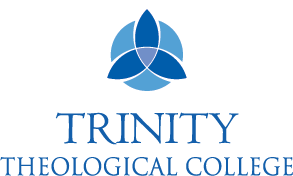Our beliefs keep Jesus and the Bible at the centre.
Trinity is a non-denominational ministry training college. The doctrinal basis of the College distills the fundamental truths of Christianity as revealed in the Bible.
Our beliefs ensure that we keep the more important things central and the less important things peripheral. The more important things concern the gospel of the Lord Jesus Christ (1 Corinthians 15:1-5) which is the power of God for salvation to all who believe (Romans 1:16).
We are Christian, evangelical, and reformed, in that order of importance.
The doctrinal basis of the College continues to be the fundamental truths of Christianity as revealed in the Bible, including especially:
- The unity of the Father, the Son, and the Holy Spirit in the Godhead.
- The sovereignty of God in creation, revelation, redemption, and final judgment.
- The divine inspiration and infallibility of Holy Scripture, as originally given, and its supreme authority in all matters of faith and conduct.
- The universal sinfulness and guilt of human nature since the fall, rendering us subject to God’s wrath and condemnation.
- The full deity of the Lord Jesus Christ, the incarnate Son of God; his virgin birth and his real and sinless humanity; his death on the cross, his bodily resurrection, and his present reign in heaven and earth.
- Redemption from the guilt, penalty, and power of sin only through the sacrificial death once and for all time of our representative and substitute, Jesus Christ, the only mediator between God and humankind.
- Justification as God’s act of undeserved mercy, in which sinners are pardoned of all their sins, and accepted as righteous in God’s sight, only because of the righteousness of Christ imputed to them, this justification being received by faith alone.
- The need for the Holy Spirit to make the work of Christ effective to individual sinners, granting them repentance toward God and faith in Jesus Christ.
- The indwelling of the Holy Spirit in all those thus regenerated, producing in them an increasing likeness to Christ in character and behaviour, and empowering them for their witness in the world.
- The one holy universal Church, which is the Body of Christ, and to which all true believers belong.
- The future personal return of the Lord Jesus Christ, who will judge all people, executing God’s just condemnation on the impenitent and receiving the redeemed to glory.
Equipped for Mission
“After a 6-month mission trip to Burkina Faso, West Africa, I became convinced that the best way I could serve God with my life was in overseas mission work, particularly teaching God’s word in less-reached areas of the world. I chose to study at Trinity as they not only grow knowledge and godliness in their students, but equip them to carry and pass on the ability to understand and apply God’s word to the ends of the earth. After gaining some experience in church ministry, my husband and I plan to serve God overseas in translation work of some kind.”
– Jess Hortin (MDIV)

